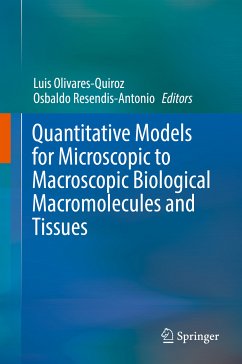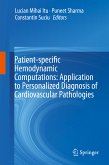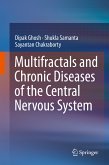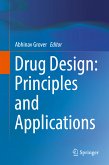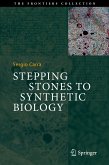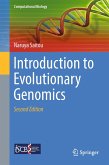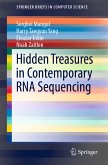This book presents cutting-edge research on the use of physical and mathematical formalisms to model and quantitatively analyze biological phenomena ranging from microscopic to macroscopic systems. The systems discussed in this compilation cover protein folding pathways, gene regulation in prostate cancer, quorum sensing in bacteria to mathematical and physical descriptions to analyze anomalous diffusion in patchy environments and the physical mechanisms that drive active motion in large sets of particles, both fundamental descriptions that can be applied to different phenomena in biology. All chapters are written by well-known experts on their respective research fields with a vast amount of scientific discussion and references in order the interested reader can pursue a further reading. Given these features, we consider Quantitative Models for Microscopic to Macroscopic Biological Macromolecules and Tissues as an excellent and up-to-date resource and reference for advanced undergraduate students, graduate students and junior researchers interested in the latest developments at the intersection of physics, mathematics, molecular biology, and computational sciences. Such research field, without hesitation, is one of the most interesting, challenging and active of this century and the next.
Dieser Download kann aus rechtlichen Gründen nur mit Rechnungsadresse in A, B, BG, CY, CZ, D, DK, EW, E, FIN, F, GR, HR, H, IRL, I, LT, L, LR, M, NL, PL, P, R, S, SLO, SK ausgeliefert werden.

